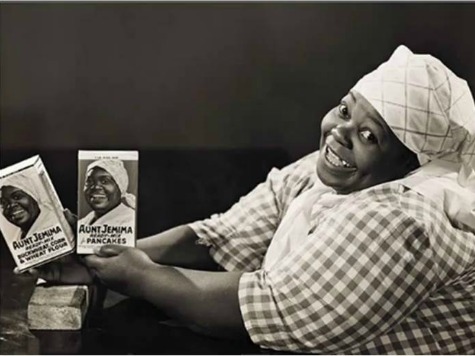Two great-grandsons of Anna S. Harrington, who was the original face of “Aunt Jemima,” have filed a $2 billion lawsuit in federal court in which they will seek a portion of future revenue from the popular pancake brand.
Quaker Oats, who currently produces Aunt Jemima pancake mixes and syrup is cited in the lawsuit, along with Pinnacle Foods and PepsiCo.
Relatives of Harrington, who was the star of commercials and public appearances for the company, claim that Quaker Oats used her recipes and trademarked her likeness as Aunt Jemima in 1937, after company officials discovered her making pancakes at the New York State Fair in late 1935.
The two men, listed as D.W. Hunter and Larnell Evans, also claim Quaker Oats exploited their great-grandmother, with no intentions of paying royalties to her estate after her death in 1955, and the company conspired to ignore her status as an employee.
After the family located a death certificate listing Quaker Oats as her employer, they filed suit.
“Aunt Jemima has become known as one of the most exploited and abused women in American History,” said D.W. Hunter, Harrington’s great-grandson.
Quaker Oats, the owner of the brand, has released a statement in response to the lawsuit: “The image symbolizes a sense of caring, warmth, hospitality and comfort, and is neither based on, nor meant to depict any one person. While we cannot discuss the details of pending litigation, we do not believe there is any merit to this lawsuit.”
In a correspondence with the plaintiffs of the lawsuit, officials with PepsiCo, the parent company of Quaker Oats, said there have been no contracts found between Aunt Jemima models and the company.
Aunt Jemima has undergone several changes since the creation of the brand, most recently in 1989, when she was depicted wearing pearls in exchange for her bandana. The new Jemima has curly hair and is much lighter-skinned, while appearing to have lost a considerable amount of weight.
Critics of the original depiction and other depictions of African American women in advertising have claimed that the image portrays a stereotypical slave serving her white masters.
Descendants of Harrington allege that the companies have practiced discrimination toward the family by “reflecting an innate form of disrespect towards African American people in general.”

COMMENTS
Please let us know if you're having issues with commenting.